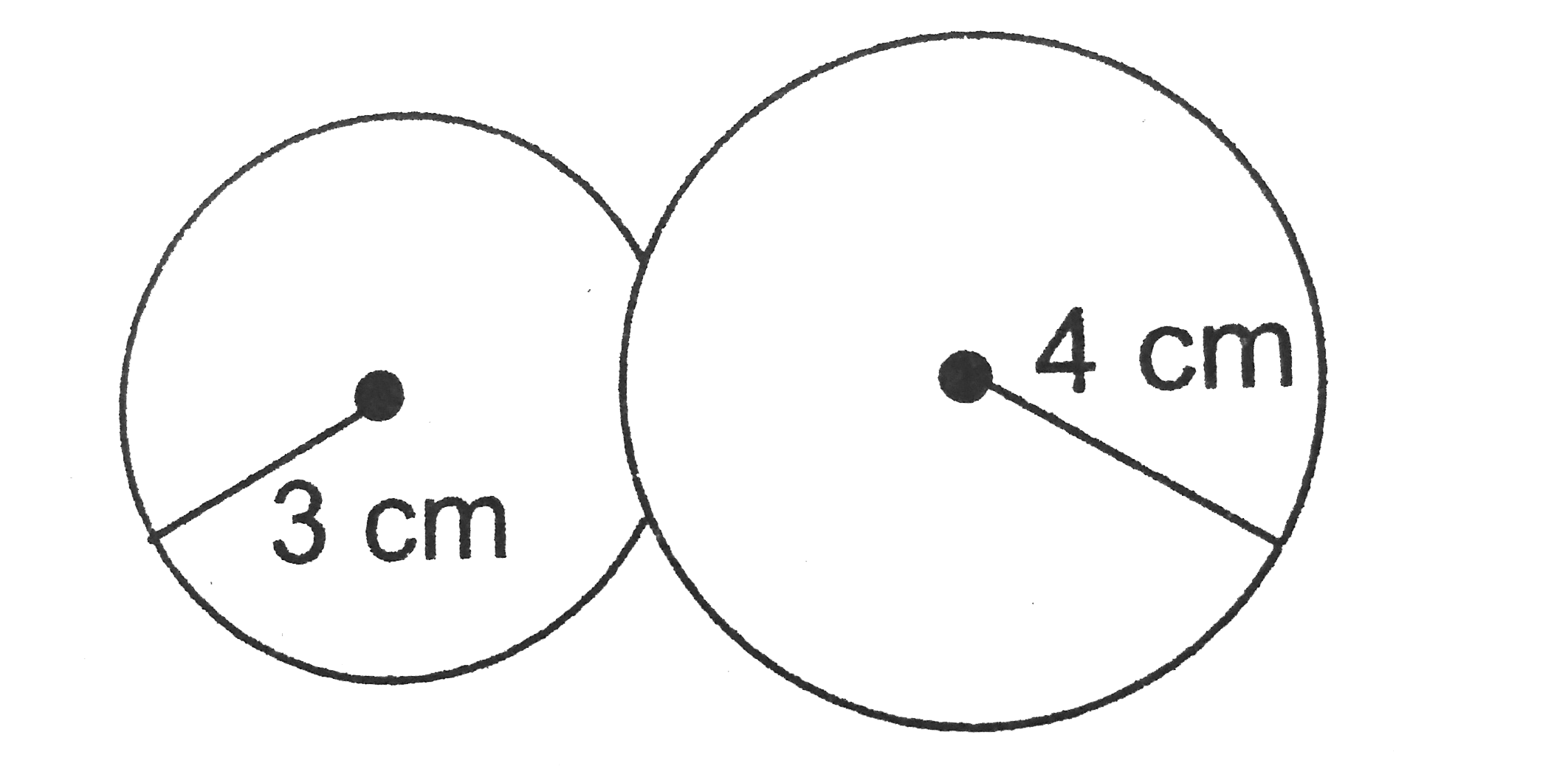A soap bubble in vacuum has a radius 3cm and another soap bubble in vacuum has radius 4cm. If two bubbles coalesce under isothermal condition, then the radius of the new bubble will be:
7cm
5cm
2.3cm
4.5cm
The correct Answer is:B

The process is isothermal and the total pressure of air inside the bubble is same as excess of pressure is given by
P=4TR
Where T is surface tension and R is radius. Also an isothermal process obeys Boyle's law hence, PV=constant ltbr> Let R be the radius of coalesce system then
P1V1+P2V2=PV
(4TR1)(43πR31)+(4TR2)(43πR32)=(4TR)(43πR3)
⇒r21+r22=R
Given R1=3cm and R2=4cm
R=√32+42
R=5cm
Topper's Solved these Questions
- BOOK - A2ZCHAPTER - PROPERTIES OF MATTEREXERCISE - Chapter Test29videos
PROPERTIES OF MATTER
- BOOK - A2ZCHAPTER - PROPERTIES OF MATTEREXERCISE - NEET Questions17videos
PROPERTIES OF MATTER
- BOOK - A2ZCHAPTER - OSCILLATION AND SIMPLE HARMONIC MOTIONEXERCISE - Chapter Test29videos
OSCILLATION AND SIMPLE HARMONIC MOTION
- BOOK - A2ZCHAPTER - ROTATIONAL DYNAMICSEXERCISE - Chapter Test29videos
ROTATIONAL DYNAMICS
Similar Questions
Knowledge Check
- Question 1 - Select One
A soup bubble in vacume has a redius 3cm and another soup bubble in vacume has radius 4cm If two bubble coulese under isothermal condition , then the radius of the new bubble will be
A7cmB5cmC4.5cmD2.3cm - Question 2 - Select One
A soap bubble in vacuum has a radius of 3 cm ad another soap bubble in vacuum has a radius of 4 cm. if the two bubbles coalesce under isothermal condition, then the radius of the new bubble is
A2.3 cmB4.5 cmC5 cmD7 cm - Question 3 - Select One
A soap bubble in vacuum has a radius of 3cm and another soap bubble in vacuum has a radius of 4cm. If the two bubbles coalesce under isothermal conditions then the radius of the new bubble is :
A2.3cmB4.5cmC5cmD7cm
A soap bubble of radius 6 cm and another bubble of 8 cm coalesce under isothermal xonditions in vacuum. The radius of the new bubble is
View SolutionIf a soap bubble of radius 3 cm coalesce with another soap bubble of radius 4 cm under isothermal conditions the radius of the redultant bubble formed is in cm
View SolutionTwo spherical soap bubbles of a radii 1 cm and 2 cm vacuum coalesce under isothermal conditions . The resultant bubble has a radius of
View SolutionTwo soap bubbles of radii 1 mm and 2 mm merge isothermally . Then radius of the new bubble formed would be
View SolutionTwo spherical soap bubbles of radii a and b in vacuum coalesce under isothermal conditions. The resulting bubble has a radius given by
View Solution

